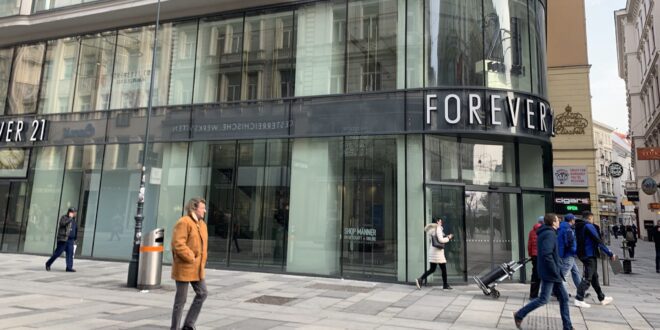What’s happening?
Forever 21 filed for Chapter 11 bankruptcy, sparking discussions among fashion experts about the future of the fast fashion industry. The decline in consumer interest towards fast-fashion business models like Forever 21 highlights a significant shift in the market.
According to Retail TouchPoints, Forever 21’s sales have been on a decline, accompanied by increased competition in the industry. This change comes at a time when sustainable business models, such as secondhand clothing websites and subscription rental services, are gaining popularity.
Industry experts are now questioning the sustainability of the fast-fashion industry, with concerns rising about its future. The shift in consumer awareness towards environmental impacts and the growing demand for sustainable alternatives are challenging the traditional fast-fashion model.
Adam Blair, a Retail TouchPoints editor, emphasized that consumers are becoming more conscious of the environmental consequences of their fashion choices. He highlighted the unsustainability of the fast-fashion ethos and its implications on both the economy and ecology.
Glenn Taylor, a senior editor, pointed out that consumer priorities have evolved, demanding a different experience from their fashion choices. This shift is creating opportunities for luxury resellers and socially conscious apparel brands to thrive in today’s market.
Why does the fast-fashion industry need a makeover?
While a single bankruptcy filing may not signify the end of an entire industry, it serves as a wake-up call for fast-fashion brands to adapt to changing consumer preferences. The evolving market trends require brands to reevaluate their strategies and business models to stay relevant.
Fast-fashion companies now have the opportunity to pivot their operations and address the growing demand for sustainable and ethical practices. The bankruptcy filing of Forever 21 sheds light on the importance of aligning with consumer needs and embracing sustainability as a core value.
By committing to rectifying past issues related to labor exploitation, public health risks, and environmental pollution, fast-fashion brands can transform into profitable, environmentally responsible businesses. This shift towards sustainability not only benefits consumers but also ensures long-term success for the industry.
What’s being done to limit fashion waste?
The emergence of circular models in the fashion industry is challenging fast-fashion companies to rethink their approach. Brands are encouraging consumers to return used clothing for store credit, promoting recycling, and reducing textile waste.
Collaborative initiatives like Francesca’s partnership with ThredUP and The North Face’s used gear exchange program showcase innovative solutions to promote sustainability in fashion. Additionally, the normalization of thrift shopping by celebrities and influencers is changing perceptions about secondhand clothing.
Consumers can contribute to reducing fashion waste by supporting these sustainable initiatives and exploring thrift shopping options. By making conscious choices and breaking away from fast fashion, individuals can make a positive impact on the environment while still enjoying quality clothing.
 Mind Uncharted Explore. Discover. Learn.
Mind Uncharted Explore. Discover. Learn.



